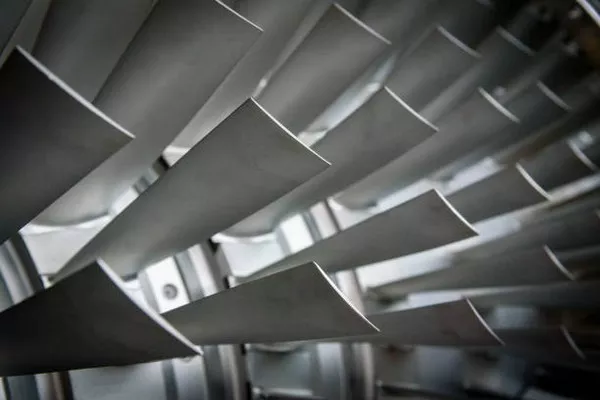When it comes to various industrial and mechanical applications, compressors play a pivotal role in facilitating the efficient movement of gases and fluids. From air compressors used in manufacturing to refrigeration compressors in cooling systems, these devices are essential components. However, for businesses and individuals in need of a new compressor, understanding the cost associated with this investment is crucial. In this article, we will delve into the factors and considerations that impact the price of a new compressor.
The Importance of Compressors:
Before delving into the cost, it’s essential to appreciate the significance of compressors across different industries. Compressors are responsible for raising the pressure of a gas, making it a versatile tool with a wide range of applications. They are commonly used in:
Manufacturing: In industrial settings, compressors are integral for powering tools, controlling air pressure, and providing a clean source of compressed air for various operations.
Refrigeration: Compressors are the heart of refrigeration systems, responsible for compressing refrigerants, enabling heat exchange, and maintaining low temperatures.
Energy Production: Gas turbines, a key component in energy production, rely on compressors to compress air before combustion, enhancing power generation efficiency.
Healthcare: Medical air compressors are vital for delivering clean and compressed air to medical equipment, ensuring the safety of patients and accurate device functionality.
Transportation: Compressors are used in various vehicle systems, such as air brakes in trucks and air conditioning systems in cars.
Given their diverse applications, it’s evident that the choice of a compressor is a significant decision for many industries and businesses. Consequently, understanding the factors influencing the cost of a new compressor is essential.
Factors Influencing Compressor Cost:
Type of Compressor: The first and most fundamental factor affecting the cost of a compressor is its type. Different applications require different types of compressors, such as reciprocating compressors, rotary screw compressors, centrifugal compressors, and scroll compressors. Each type has its unique features and price points.
Capacity and Size: Compressor capacity is usually measured in cubic feet per minute (CFM) or liters per second (L/s). The larger the capacity required, the more powerful and costly the compressor tends to be.
Pressure Requirements: Compressors come in various pressure ranges to suit different applications. High-pressure compressors capable of handling demanding tasks typically command a higher price.
Brand and Manufacturer: Established and reputable compressor manufacturers often charge premium prices for their products. While these compressors may come with superior build quality and reliability, they can be more expensive.
Energy Efficiency: Energy-efficient compressors may have a higher upfront cost but can result in substantial long-term savings on energy consumption, making them a cost-effective choice in the long run.
Installation and Maintenance: The cost of installing and maintaining the compressor should also be factored in. This includes electrical work, piping, and any necessary modifications to the facility.
Additional Features: Some compressors may come with advanced features such as digital controls, remote monitoring, or special coatings for durability. These features can add to the overall cost.
Market Conditions: Economic factors and market conditions can influence compressor prices. For instance, fluctuations in the prices of raw materials and global supply chain disruptions can impact the cost of manufacturing compressors.
Local Regulations: In some regions, specific regulations and standards may require compliance with certain specifications, which can affect the selection and cost of compressors.
Cost Ranges for Different Compressor Types:
To provide a clearer picture of compressor costs, let’s explore the approximate price ranges for some common types of compressors:
Reciprocating Compressors: These are among the most affordable compressor types and are commonly used in small-scale applications. Prices can range from a few hundred to a few thousand dollars, depending on size and features.
Rotary Screw Compressors: These are popular for medium to large-scale industrial applications. Prices typically start in the low thousands and can extend into the tens of thousands of dollars, depending on capacity and features.
Centrifugal Compressors: These are high-capacity compressors used in large-scale industrial settings. Prices for centrifugal compressors can range from tens of thousands to hundreds of thousands of dollars.
Scroll Compressors: Scroll compressors are often used in HVAC systems and come in various sizes. Prices can range from a few hundred to several thousand dollars.
It’s important to note that these price ranges are approximate and can vary significantly based on the factors mentioned earlier.
Considerations for a Cost-Effective Purchase:
Application-Specific Needs: Understanding your specific requirements is crucial. Overspending on a compressor with excessive capacity can be as detrimental as purchasing an inadequate one. Tailoring your choice to your application is essential.
Energy Efficiency: Consider the long-term operating costs and potential energy savings of an energy-efficient compressor. While the initial investment may be higher, it can lead to significant savings over time.
Maintenance and Service: Investigate the availability of maintenance and service options for your chosen compressor. Regular maintenance is key to extending the lifespan and reliability of your investment.
Compliance and Regulations: Ensure that the compressor you select complies with local regulations and safety standards. Non-compliance can lead to costly fines and operational disruptions.
Brand Reputation: While established brands often come with higher price tags, they also offer a track record of reliability and quality. Assess the reputation of the manufacturer before making a decision.
Conclusion:
The cost of a new compressor can vary widely based on factors such as type, capacity, brand, and additional features. Understanding your specific needs and conducting thorough research are essential steps in making a cost-effective choice. While the initial investment is important, considering long-term operating costs and energy efficiency can lead to a more financially sound decision. Ultimately, a well-informed choice will ensure that your compressor meets your application’s requirements efficiently and reliably.

